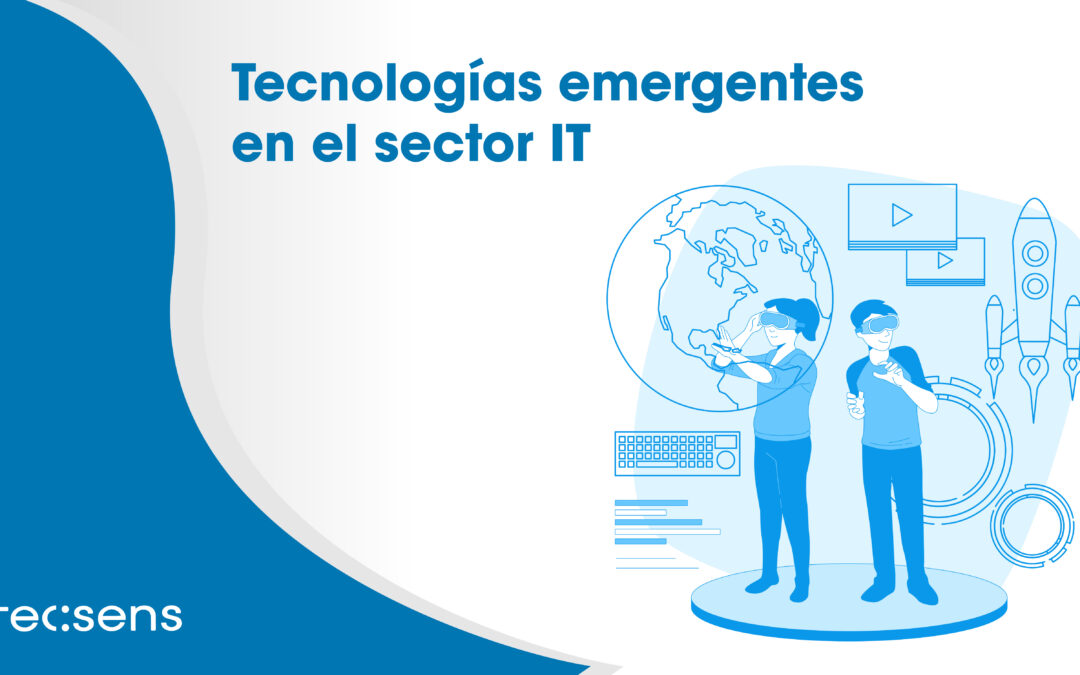In the growing IT universe, innovation is the driving force behind radical change. As we move into this new decade, several emerging technologies are transforming the IT landscape, opening up a range of possibilities and challenges. These trends, still in their early stages, are redefining the way companies manage their operations and how IT professionals approach contemporary challenges. If you don’t want to miss out on all about emerging technologies in the IT sector and how it affects the business landscape, stick around and read.
3 Emerging Technologies in the IT Sector
1. Quantum Computing: Beyond Traditional Bits and Bytes
Quantum computing is presented as one of the most revolutionary technologies in the field of IT. Unlike classical systems, which use bits to represent information such as 0 or 1, quantum computing relies on qubits, which can exist in multiple states simultaneously. This makes it possible to perform calculations exponentially faster than conventional computers, opening up new possibilities in the field of data analysis, cryptography and simulation of complex systems.
Although quantum computing is still in its early stages, a number of leading technology companies are investing heavily in research and development to harness its potential. Solving problems hitherto considered intractable could become a tangible reality with the advancement of this technology.
2. Intelligent Automation: Beyond Routine Processes
Automation has been a mainstay in the IT sector, but now we are seeing the evolution towards intelligent automation. This new wave of technology combines traditional automation with artificial intelligence (AI) and machine learning. Intelligent automation isn’t limited to repetitive tasks; It has the ability to understand contexts, learn from patterns, and make complex decisions.
An exciting application of IAG (Generative Artificial Intelligence) is advanced automation. Systems like OpenAI’s GPT-3 are demonstrating amazing abilities to understand and generate text in contextually relevant ways, which has the potential to revolutionize content creation, virtual assistants, and more. However, the challenge lies in ensuring that these emerging technologies are ethical and equitable, avoiding bias and addressing concerns about the impact on employment.
This technology is radically transforming the way companies manage their internal processes. From automating workflows to optimizing supply chain, intelligent automation is freeing up IT professionals to focus on more strategic and creative tasks, thereby elevating operational efficiency.
3. Edge Computing: Bringing Processing to the Shore
With the rise of internet-connected devices, edge computing has become essential. Rather than relying exclusively on centralized servers, edge computing brings data processing closer to where it is generated, reducing latency and improving efficiency in real-time. This is especially crucial in applications such as the Internet of Things (IoT), augmented reality, and autonomous vehicles.
Edge computing not only accelerates response time, but also eases the burden on networks, allowing for a more equitable distribution of resources. This technology is being rapidly adopted in various sectors, from healthcare to manufacturing, where speed and reliability are imperative.
Emerging technologies in the IT sector are ushering in a new era of possibilities and efficiency. Quantum computing promises to solve previously unapproachable problems, intelligent automation is redefining the way we work, and edge computing improves device connectivity in real-time. However, along with these opportunities also come challenges, such as the need to address security and ethics concerns.
As these technologies evolve, it’s essential for businesses and IT professionals to stay on top of these developments to make the most of their potential. The ability to adapt and the willingness to embrace innovation will be key to success on this exciting journey into the future of information technology.




